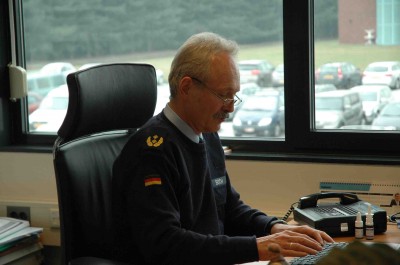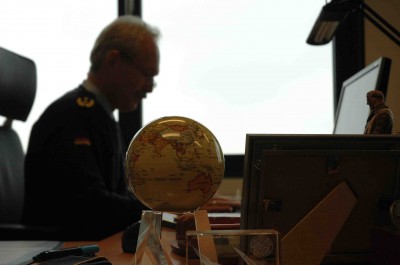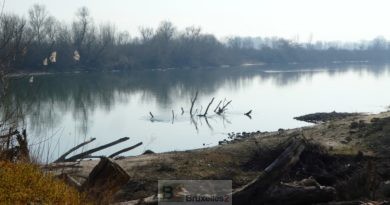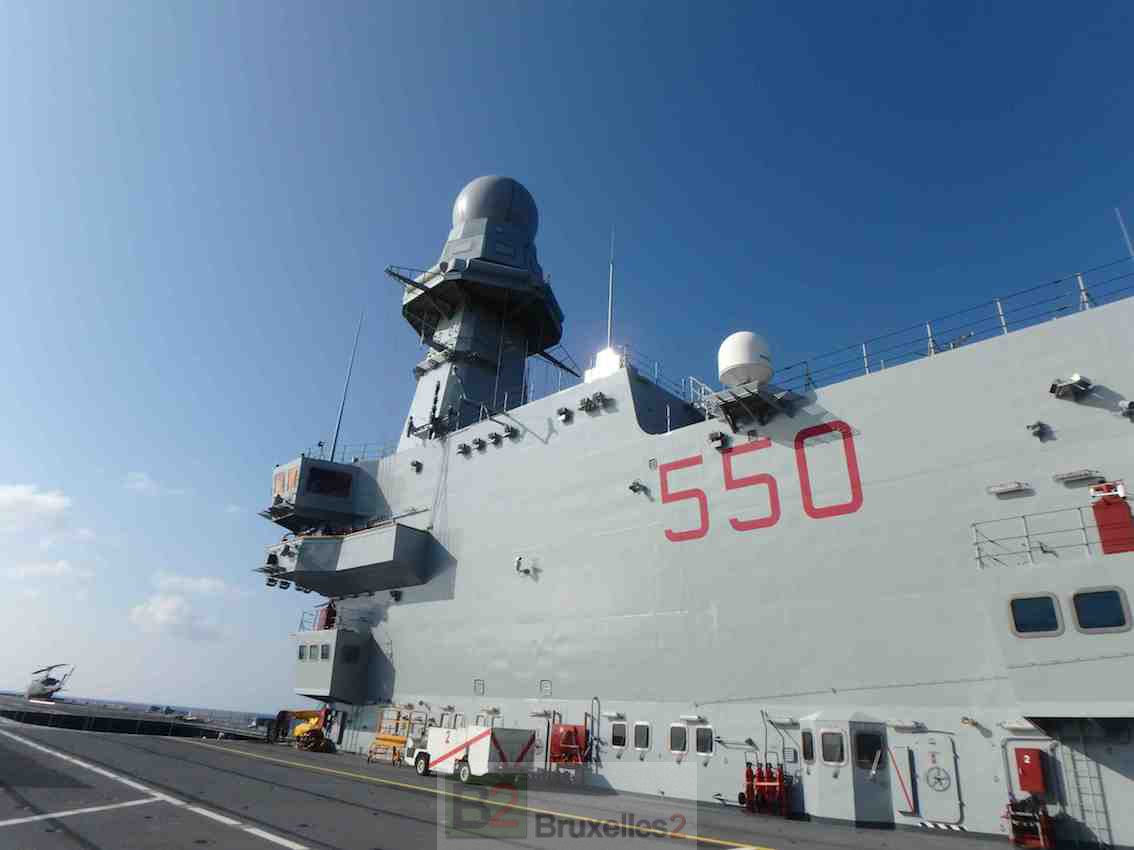(EATC File) At the helm of EATC, Jochen Both

(BRUXELLES2à Eindhoven) It is a German general who is the boss of EATC appointed for two years. Interesting task because it is a question of passing from the theoretical concept to the practice. These first months will be crucial as they will no doubt define the way forward, in particular the degree of integration of processes such as the rules for future memberships. According to the current rule of alternation, he will then be replaced by a French officer.
How do you define the purpose of EATC?
As the 4 founding nations defined in the concept: "To gradually transfer and integrate into a single national command the personnel and competent national responsibilities which together enable the execution of air transport missions, increase the efficiency and 'efficiency of Participating States' military transport efforts'
States abandoning their role?
No. The objectives of each country continue to play a role. You can look: there is no EATC flag on planes. These remain under national authority. It is not the EATC that is in control of route or flight orders. It does not file its own request itself. We are here to optimize the use of existing resources, increase interoperability, reduce logistics in the event of deployment, reduce overall expenses, ....
Your main challenge?
Aircraft operational control is not a challenge in itself. We do it all the more easily, as at the air level, we already practice it every day in coalition operations. But we don't just have an operational objective. A whole part of our part concerns what are called functional tasks. We have to define the regulations, freight standards, training, translate all the documentation. The challenge is to show that it works. All this in a difficult context, where three of our four participating countries have embarked on a major internal restructuring process.
Can we quantify the savings generated by EATC?
Shared use certainly reduces certain thefts. How many flights exactly will we be able to save is still a little early to say. We have about thirty economy indicators. At the end, we should save about 20% of budget, for an equivalent result. This goal seems achievable to me. The Luftwaffe alone had the same strength as we have here for four countries. We have already saved that. But the result is not just a simple savings figure. He is elsewhere. We are going to allow for more efficiency, by standardizing our procedures, with common flight authorisations. An “EATC” aircraft will be able to fly in France and Germany without requiring authorization. All of this is quite difficult to measure.
Can other countries join EATC?
Two countries are already in the starting blocks. Luxembourg, for example, which poses no real difficulty (Editor's note: Luxembourg has limited aviation already integrated with the Belgian partner in particular, the A400M, for example, is purchased jointly. And at the linguistic level, the languages spoken are already those of the participating countries). Spain is very interested. A Spanish liaison officer arrives and we are going to integrate him into our teams at the EATC. The UK has a very pragmatic approach, you have to see. We want other nations to join us. It's clear. But clearly, also, we must first have a Treaty, a well-established functioning between the 4 founding nations, before others join us.

What are the requirements for joining EATC?
A clear membership policy needs to be defined. It's not just the language issue (all documentation needs to be translated). You also have to use the same software, the same expense balance system (Antares+), etc. You have to be sure that the planes brought in are well integrated into the fleet. It is necessary to calculate how many changes must be made to integrate a new country. With two or three countries, this does not cause major changes. If there are more countries, you really have to ask yourself where is the right balance point. On the other hand, if you have more means and new landing places, it can also be easier.
In any case, the main condition for the participation of a new State remains common operational control. For example, I don't need permission from Germany to enter a German C160. I can do it myself.
Precisely you have received this operational control. Is this valid for all air means?
No. It is sometimes necessary for certain countries to maintain their own structures. In France and Germany particularly. France has retained certain capacities for the overseas departments, support for certain special missions (nuclear missions, etc.). Germany has retained command and control of the helicopters, as well as the transport of VIPs or parliamentary missions, for reasons of secrecy in particular. But there is a division of abilities. Thus the German A340 which is used for government visits and parliamentary missions remains under national control. But we can also use it for medical evacuations.
* * *
The general in a nutshell.
- Born in 1954 in Brunsbüttelkoog (a port city in northwestern Germany, in Schleswig-Holstein, near Denmark), Jochen Both began his career as an officer in 1972 as a fighter pilot. At the higher level, he alternated between operational commands and within the General Staff.
- He notably commanded the Flight Group (from 1992 to 1994) and the "Immelmann" reconnaissance squadron (1997-2011), before being Deputy Chief "Air" of the Joint Staff in Kabul within the ISAF (2009-2010). He was also the spokesperson for the Minister of Defense (1994-1996) to Volker Rühe (CDU), under the Kohl government, when the Bundeswehr integrated a number of external operations (of the UN) and that the Eurocorps is created.
- A graduate of NATO's European Defense College in Rome (in 2001), Jochen Both was then Director of the Luftwaffe Academy (2003) then Head of "Concepts and Operations" at the Air Force General Staff ( 2005-2009). He took up his post at the EATC on 1er September 2010.


